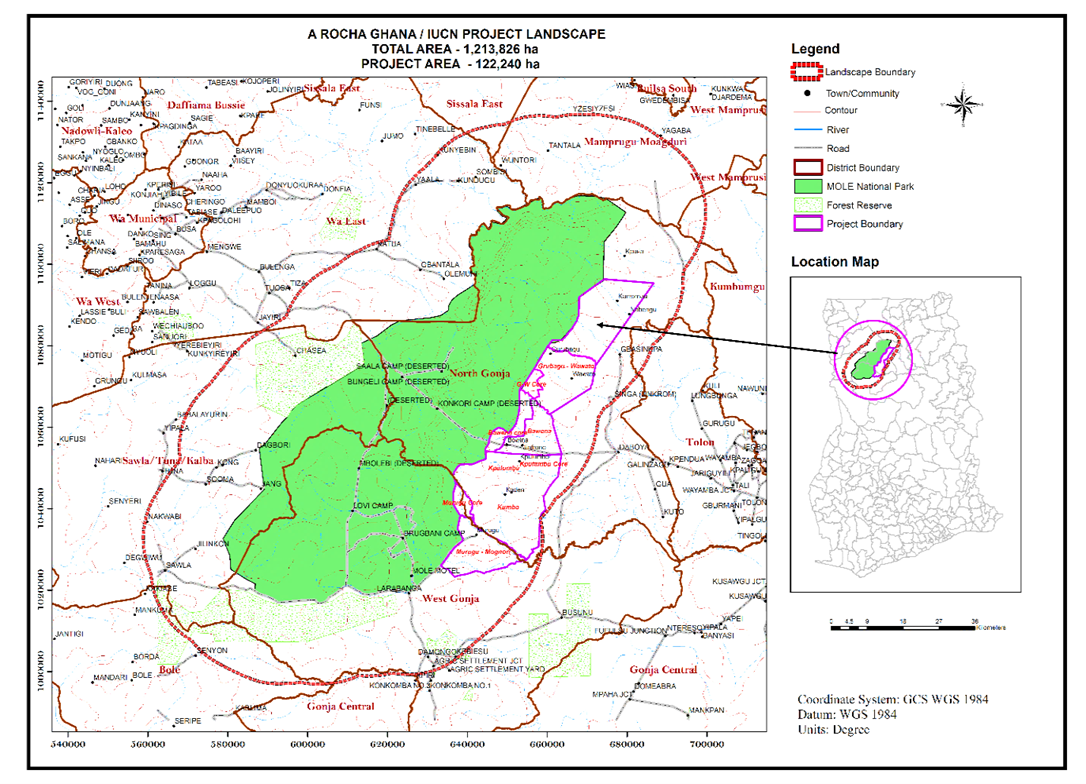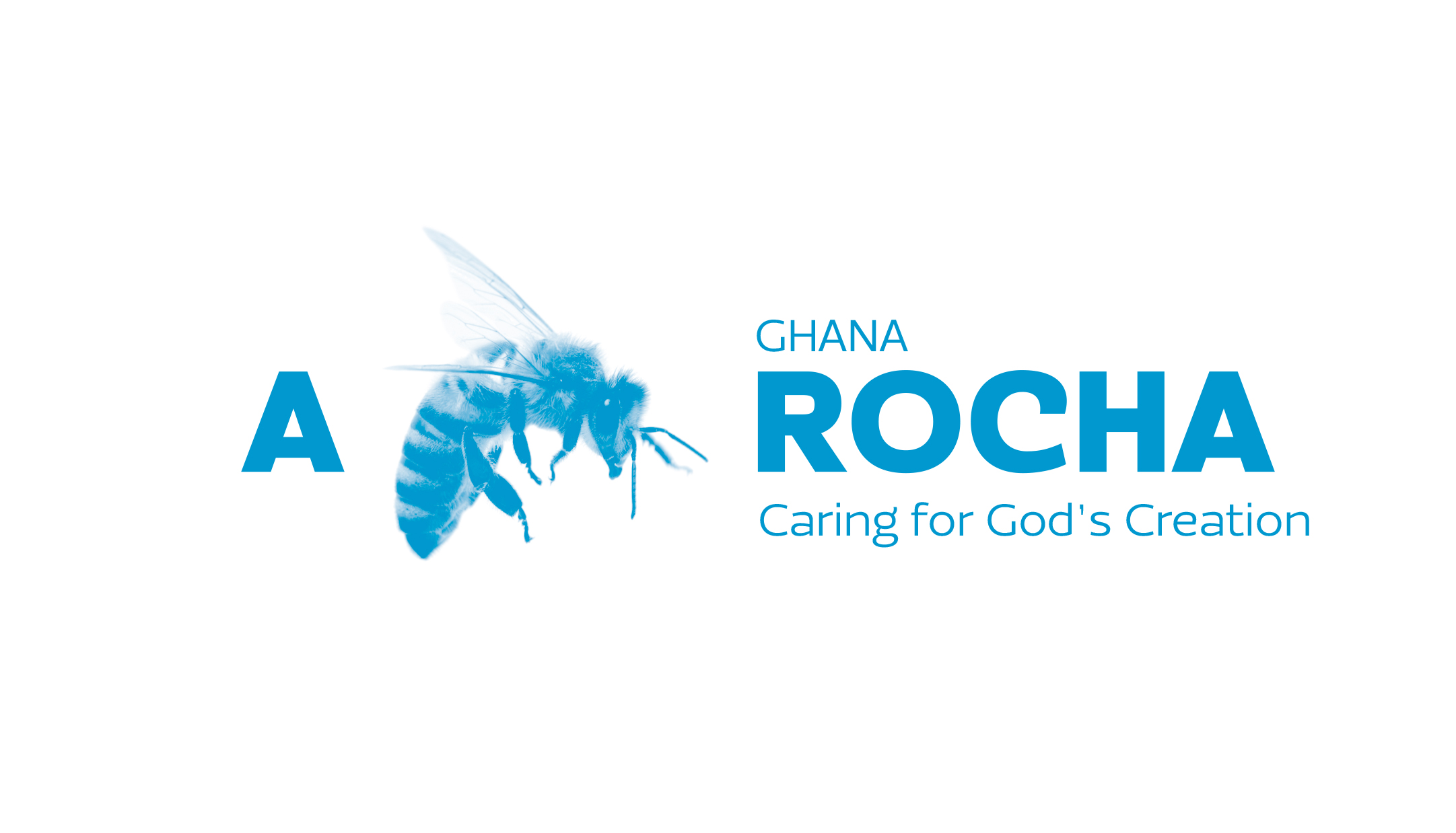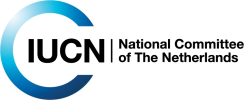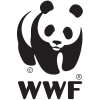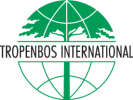- Home
- Where we work
- Ghana
Mole Ecological Landscape
Like much of Northern Ghana, the Mole Ecological Landscape is vulnerable to climate change. A Rocha Ghana therefore works with communities, district assemblies and companies on reducing deforestation and promoting the restoration of savanna woodlands around Mole National Park. Through business competitions, Momo4Climate selects and supports entrepreneurs that make businesses out of planting trees, sustainable charcoal production, community collection and processing of naturally growing shea nuts.
The Mole Ecological Landscape is a biodiversity hotspot in the north of Ghana surrounding the Mole National Park, Ghana’s largest protected area. The area covers 17 thousand square kilometres and supports an estimated population of 320,000. The landscape forms part of the Volta basin, which contributes significantly to Ghana’s economic development through the provision of vital water resources and support for agriculture activities.
Communities living across this savannah landscape are closely dependent on local natural resources. Agriculture and livestock rearing are the major source of employment and people collect non-timber forest products (NTFPs), wild fruits and nuts like Shea and DawaDawa.
Subsistence Farmers Affected By Climate Change
Like much of Northern Ghana, the Mole Ecological Landscape is vulnerable to climate change. Dry weather conditions, high levels of poverty, heavy reliance on rain-fed agriculture for livelihoods coupled with unsustainable resource use, governance, and policies negatively influence the livelihoods of communities in the Mole landscape who are mostly subsistence farmers.
The communities and district assemblies within the landscape are considered one of the most vulnerable in a preliminary vulnerability assessment conducted by the Environmental Protection Agency of Ghana.
Climate change is expected to have a greater impact on crop yields in the area, and the severity will become greater as warming increases. Importantly, many of the areas where crop yields are likely to decrease are also areas that are already experiencing food insecurity. Communities’ resilience to climate change relies on a combination of their ability to adapt to new conditions and also their capacity to recover from, frequent and severe disturbances.
Momo4c Action In The Mole Ecological Landscape
To improve climate resilience in the Mole ecological landscape, A Rocha Ghana works with individual entrepreneurs, community associations and companies to transition environmentally unfriendly livelihood and economic ventures into more sustainable, and green investments. These need to be restorative, enhance ecosystem services and help people living in the landscape build adaptive capacity.
Through baseline studies, A Rocha has identified prospective community association and individual enterprises that have potential for benefitting from targeted finance lending schemes that will eventually lead to transition and improvement of current destructive livelihood ventures.
Collaboration with public and private sector
MoMo4C is also working with companies such as Form International on reducing deforestation and promoting the restoration of savanna woodlands around Mole National Park. Business competitions are organized to find and support the best entrepreneurs that make businesses out of planting trees, sustainable charcoal production, community collection and processing of naturally growing shea nuts and other high-end non-timber forest products. Local communities and particularly women are involved in business development.
In partnership with the Environmental Protection Agency of Ghana, we use the baseline in-depth vulnerability assessment of the landscape to support district assemblies to align adaptation to the National Adaptation Plans and further use these plans to drive investments for adaptation interventions.
The program also builds on several other landscape or sub-jurisdictional programs on landscape restoration and emissions reduction under Ghana’s REDD Plus strategy as well as programs by other bi-lateral agencies like GIZ, IUCN, UNDP, EU and AFD as well as commodity sustainability platforms like the Global Shea Alliance.
